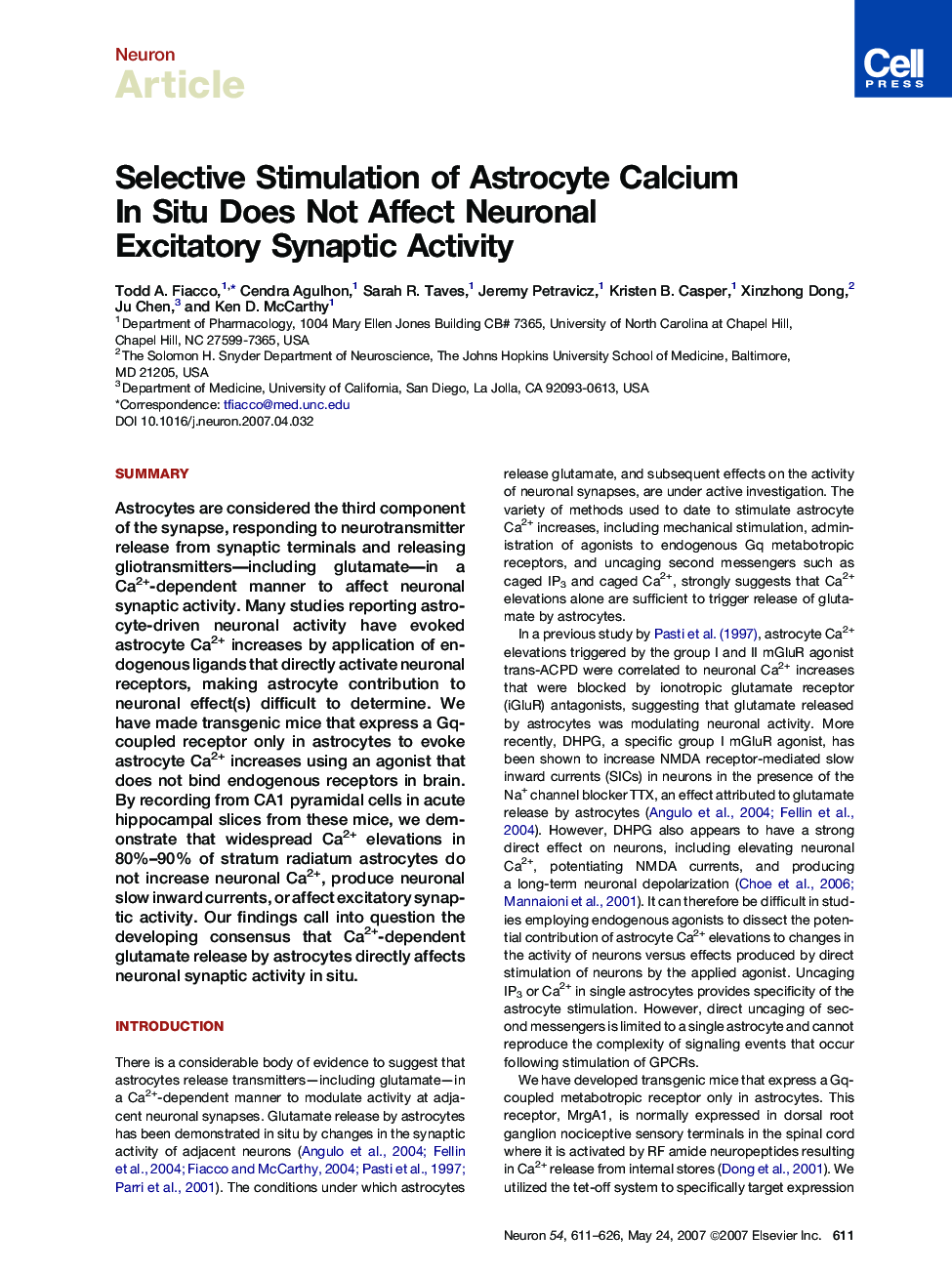| Article ID | Journal | Published Year | Pages | File Type |
|---|---|---|---|---|
| 4322579 | Neuron | 2007 | 16 Pages |
SummaryAstrocytes are considered the third component of the synapse, responding to neurotransmitter release from synaptic terminals and releasing gliotransmitters—including glutamate—in a Ca2+-dependent manner to affect neuronal synaptic activity. Many studies reporting astrocyte-driven neuronal activity have evoked astrocyte Ca2+ increases by application of endogenous ligands that directly activate neuronal receptors, making astrocyte contribution to neuronal effect(s) difficult to determine. We have made transgenic mice that express a Gq-coupled receptor only in astrocytes to evoke astrocyte Ca2+ increases using an agonist that does not bind endogenous receptors in brain. By recording from CA1 pyramidal cells in acute hippocampal slices from these mice, we demonstrate that widespread Ca2+ elevations in 80%–90% of stratum radiatum astrocytes do not increase neuronal Ca2+, produce neuronal slow inward currents, or affect excitatory synaptic activity. Our findings call into question the developing consensus that Ca2+-dependent glutamate release by astrocytes directly affects neuronal synaptic activity in situ.
